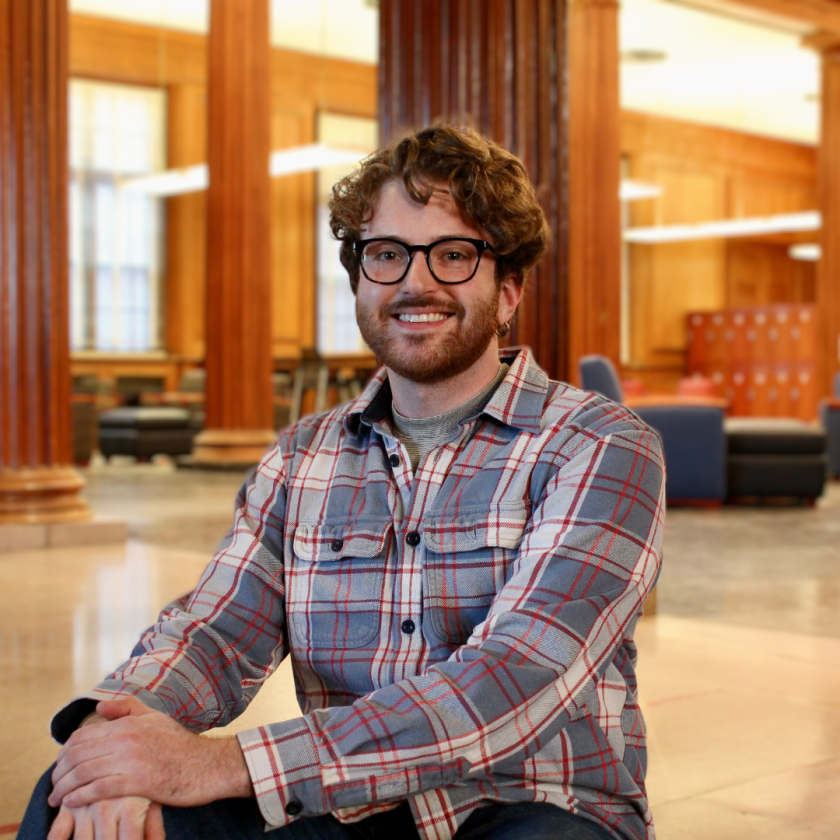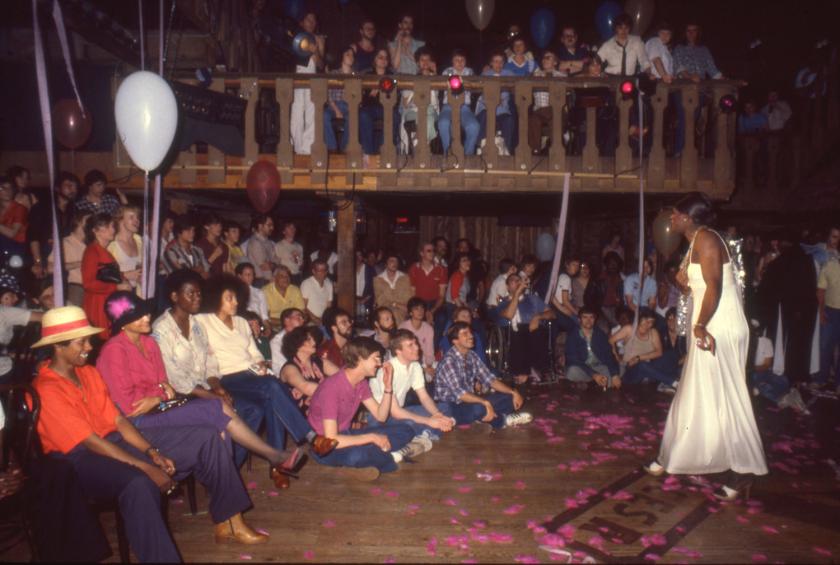
Adam Beaty decided to pursue an MSLIS degree to combine his love of history, the arts, and community-centered spaces. This combination of interests culminated in a digital collection called Queer Nightlife in Champaign-Urbana, IL: 1973 – 2000 that he created as part of his independent study with Assistant Professor Travis L. Wagner.
The 244-item collection—completed across hundreds of hours of research over ten months—showcases digitized materials depicting nearly thirty years of queer nightlife in Champaign County. Beaty built the collection through archival research and interviews with Champaign community member and DJ, Doug Barnes, who provided access to thousands of images and memorabilia that he collected from gay bars.
"Champaign-Urbana was a huge hub for the gay community, specifically in the late 1970s and 1980s. People from around the Midwest came to gay bars here to socialize, do drag, and be around members of their community," Beaty said of his research findings.
Beaty further curated his collection into a digital exhibit LGBTQ Spaces in Champaign County for The Urbana Free Library. The exhibit features physical locations important to the LGBTQ community.
Wagner said that Beaty's research is vital to the transgender digital archives movement and presents new viewpoints to transgender history.
"His project offers two unique additions to the still evolving work of queer history," said Wagner. "First, it challenges the false narrative that important queer culture and activism only occurred in metropolitan cityscapes. Second, it offers clear evidence of the central role queer communities and individuals ought to play in that work to ensure that these complex histories are ethically represented and accessed."

Beaty's idea for the collection was sparked by his disappointment at the dearth of archival materials detailing the activities and experiences of LGBTQ+ people in Champaign County.
"As a queer transgender man entering the archival field, I felt magnetically drawn to this work of filling a gap in archival knowledge," said Beaty.
His independent study, part of a larger apprenticeship program with The Urbana Free Library, allowed him the opportunity to address this archival gap. The apprenticeship is a two-semester program that includes a practicum and an independent study, both for course credit. While his practicum took place at The Urbana Free Library, for his independent study, he approached Wagner about his idea for a digital collection.
"[This project] presented me with an opportunity to directly connect with community members, learn about their materials as connected to their lived experience, and then describe and preserve the materials in a way that honors their queer identities and experiences," said Beaty, who has an undergraduate degree in history from the University of Illinois Urbana-Champaign.
In addition to extensive research, his archival work included digital reformatting, collection building, implementing queer-centered metadata, and website formatting.
"Despite the ever-present imposter syndrome, I discovered that I had all the skills necessary to do the hard and time-consuming work the collection called for," said Beaty.
Beaty, a native Illinoisan, fell in love with the university during his undergraduate degree, and this, coupled with the iSchool's top-ranked MSLIS degree program, was a major factor in his decision to pursue graduate study at the iSchool.
After he graduates in May, Beaty plans to enter the archival field, specifically in the realm of digital archives, digital reformatting, and preservation.